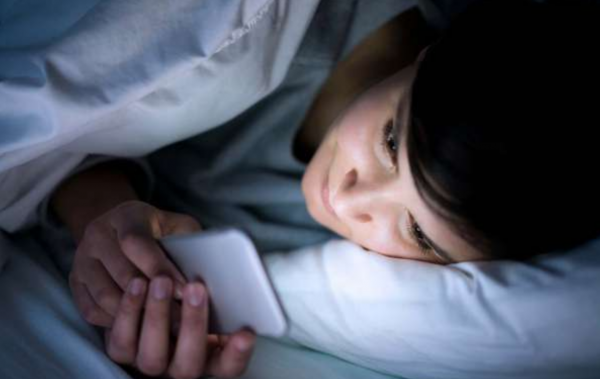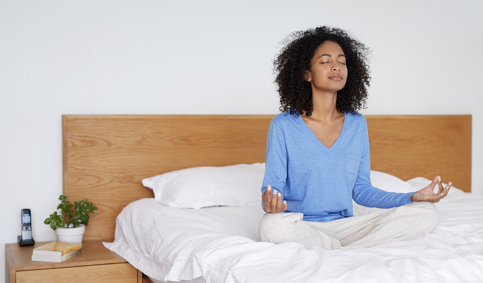
26 Apr Sweet Dreams, Sweet Health

In busy modern lives, it is common for us to forego sleep in order to squeeze in that one more thing on our to-do list. Or we may have become addicted to smartphones and devices, using them for work, pleasure and communication and inevitably turning us into technology night owls.
Sleep is essential to health as rest is needed for our body to heal, regenerate, detoxify and grow.
Here are examples of how lack of sleep, especially on a regular basis or chronic sleep deprivation, impacts your health.
Obesity – People who sleep less than 6 hours per night are more likely to gain weight due to the effects on hormonal balance. Poor sleep increases the production of the stress hormone cortisol and insulin, both of which enhances fat storage.
Insufficient sleep leads to lower leptin, a hormone that tells your brain you have enough food. And ghrelin, a hormone that stimulates appetite, goes up. These lead to food cravings and overeating.
Diabetes – Lack of sleep slows down the body’s processing of glucose. Studies have shown that adults who sleep less than 5 hours a night habitually have a much higher risk of developing diabetes.
Hypertension and heart disease – For those with existing hypertension (high blood pressure), one night of little sleep can cause blood pressure to rise throughout the following day. Sleep apnea sufferers, are awakened several times during the night due to their upper airways being blocked repeatedly, causing brief surges in blood pressure every time they wake. Over time this may lead to chronic hypertension that increases the risk of heart disease.
Memory and brain health – Substances that build up in the brain during waking hours need to be cleaned and removed and this takes place during sleep.
Sleep affects changes in the structure and organization of the brain related to learning and memory termed neuroplasticity.
Immune function – Your immune system sends out signals to make you sleepy when you are ill so that energy can be diverted to fight off infections and eventually calm down inflammation. Inadequate sleep may turn on genes that increase inflammation and over stimulate the immune system. An over stimulated immune system may in term attack our own body’s tissues resulting in autoimmune conditions.

How Much Sleep Do You Need?
A baby needs about 18 hours of sleep, children and teenagers require 9-10 hours. Adults need 7-9 hours.
There are variations among individuals and depending on circumstances. More sleep is needed during illness, and if you exercise or train intensively as more time is required for recovery.
It seems women tend to need more sleep than men.
10 Ways to Get Sweet Sleep
- Get out into the sunshine especially during the first half of the day. This helps to set a healthy circadian rhythm that regulates sleep patterns. If you live in a place with little sunshine, use a light therapy box to replicate sunlight.
- Adjust light settings on your screens to be in line with the time of day and eliminate blue light. Dim lights at home in the evening. You can also wear amber glasses that block out blue light. Blue light suppresses production of melatonin, a hormone that helps you to sleep.
- Certain foods affect sleep. If you are sensitive to caffeine, then avoid it especially from the afternoon onwards. Tryptophan-rich foods boosts melatonin production so have some of these at dinner time, e.g. eggs, salmon, nuts, turkey, cheese and tofu.
- Set a regular schedule to sleep and wake up, for e.g. 10pm-6am or 11pm-7am timings that are in line with natural light cycles.
- Turn off smartphones, devices and TV an hour before bedtime to reduce mental stimulation and blue light exposure.
- Have a routine that unwinds and prepares your mind and body for sleep, e.g. simple breathing exercise, a relaxation meditation or a warm shower before bed.
- Leave smartphones and devices out of the bedroom because the electromagnetic fields and blue light interfere with sleep. You are more likely to be tempted to use these devices at bedtime if they are in the room.
- If you really like to have your smartphone or device in the bedroom or use it for your wind down routine, then adjust the light settings for night and turn on airplane mode once you are done.
- Make sure your bedroom is totally dark and quiet. Use a blackout curtain if necessary.
- Get the temperature right in the bedroom. Feeling too hot or cold disrupts sleep. Keep the room cool but your feet warm.

Please consult a health professional if you have persisting insomnia or conditions that disrupts your sleep such as pain, sleep apnea, nightmares or anxiety, or you are sleeping excessively for a continued period of time.



